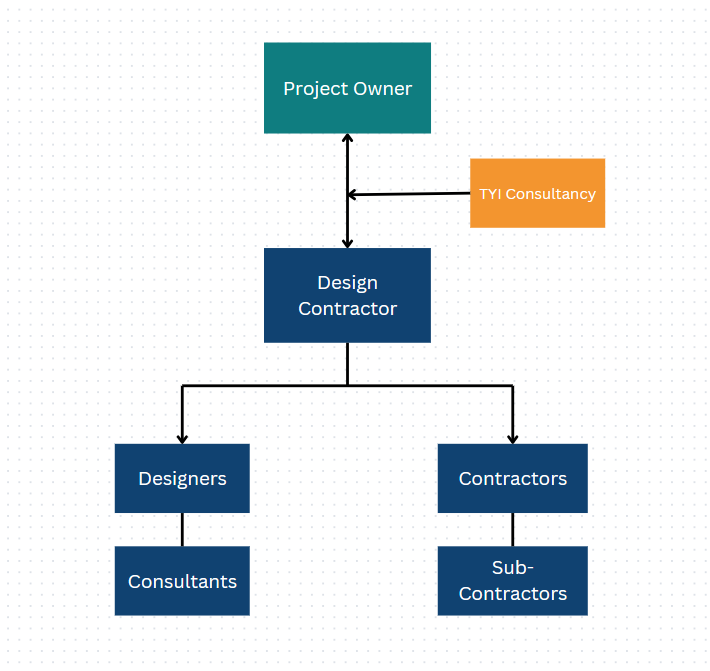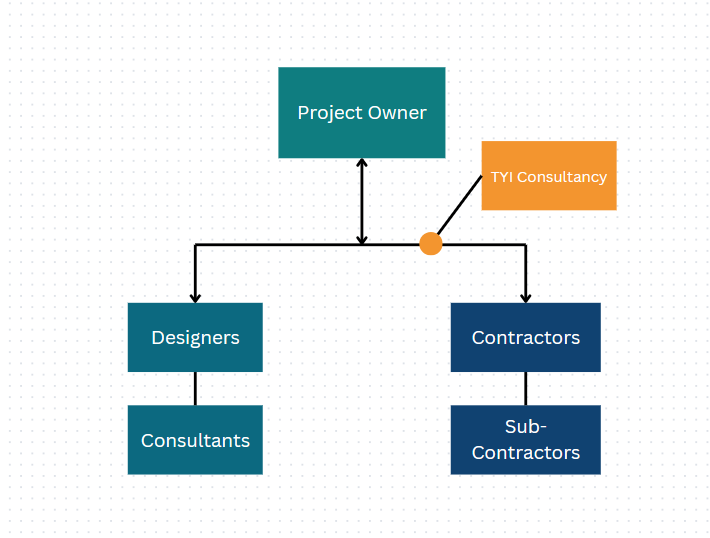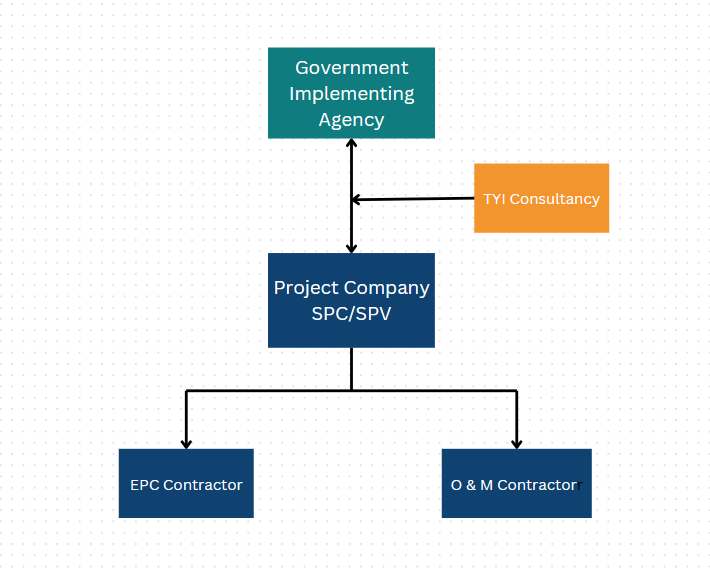Project Consultancy
"Helping Contractors to get Awarded in high profile Infrastructural projects"

ABOUT PROJECT CONSULTANCY
Terravastus Yoka Infrastructures (TYI) has helped hundreds of contractors to be awarded high net projects across the world. We bridge the gap between client expectations and contractor capabilities.
Owing to our diverse team from all over the world project owners/developers in the private and government sectors believe that TYI is the best consultancy to onboard qualified contractors for infrastructural projects.
Project Delivery Methods
The projects TYI help contractors secure are in the Design-Build, Design-Bid-Build or Public-Private-Partnership categories.
Design-Bid-Build(DBB)

A design team and general contractor work directly for the project owner under separate contracts. The design team works with the owner to develop the contract documents: drawings, specifications, and other exhibits. Once the design is finished, it is sent out for general contractors to provide a bid on the project.
Design-Build(DB)

Project owner contracts a single firm for a project’s design and construction.
Public -Private-Partnerships(PPP)

Public-Private Partnerships (PPPs) involve long-term contracts between the government and a private company to provide services or assets to the public.
TENDERING METHODOLOGY
- Selective tendering; This is a competitive bidding process that we employ when the project owners have fixed budget and fair amount of time before projected commencement period.
TYI on behalf of the Project owner invites a selected group of contractors to bid for the project. The Project Owner evaluation team analyses the submitted bids to contractor with best bid is Awarded the Project. - Negotiated tendering; This is direct sourcing bidding process for specialized projects that have limited time to commencements and unfixed budget.
TYI vets individually and onboards a suitable contractor to the Project Owner team to be Awarded the Project.

SELEECTION CRITERIA FOR CONTRACTORS
1. Experience and Expertise: The contractor should have a proven track record in similar types of infrastructure projects. This includes experience in the project’s scale, complexity, and any specific technical requirements. A contractor’s familiarity with relevant regulations, standards, and best practices also provides reassurance of quality and compliance.
2. Financial Stability: Infrastructure projects are capital-intensive, so the contractor’s financial health is critical. Financial stability ensures that the contractor can fund the project effectively without delays due to cash flow issues. An analysis of their financial statements, credit history, and access to financing options helps determine their ability to manage the financial demands throughout the project lifecycle.
3. Technical Capability: The contractor must possess the necessary equipment, technology, and workforce to handle the project’s scope and requirements. This includes access to specialized machinery, skilled labor, and up-to-date technology that can enhance efficiency, quality, and safety. The contractor should also demonstrate a strong understanding of any advanced or innovative techniques required for the project.
4. Safety and Compliance Record: An infrastructure contractor must adhere to high safety and regulatory standards. Reviewing their safety record, compliance with industry regulations, and past incidents can indicate their commitment to safe practices and quality control. The contractor’s compliance with environmental regulations is also crucial, especially for projects that may have significant environmental impacts.
5. Project Management Skills: Strong project management capabilities ensure that the contractor can handle timelines, budgets, and resources effectively. The contractor should demonstrate effective planning, scheduling, and risk management skills. This includes a history of meeting project milestones, minimizing delays, and efficiently coordinating with subcontractors, suppliers, and other stakeholders.
6. Reputation and References: A contractor’s reputation within the industry and among previous clients is a valuable indicator of their reliability and quality. Client references, case studies, and performance reviews provide insight into the contractor’s ability to meet project expectations and maintain client satisfaction. Positive feedback and strong references from similar projects can bolster confidence in their ability to deliver.
7. Adaptability and Innovation: Infrastructure projects often face unexpected challenges, so the contractor’s ability to adapt to changing conditions and leverage innovative solutions is valuable. A contractor who demonstrates flexibility, problem-solving skills, and openness to new technologies can help address unforeseen issues and improve project outcomes.